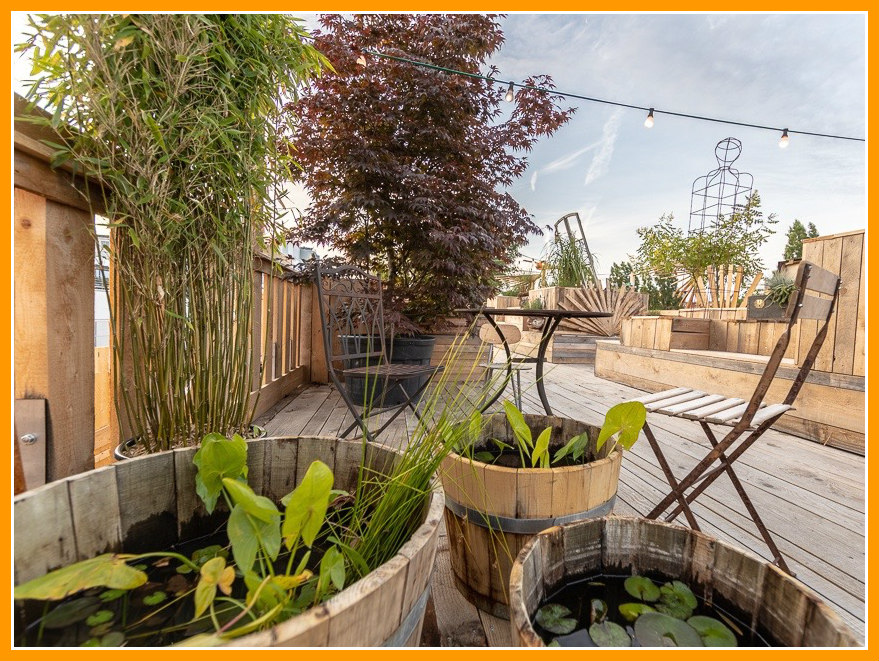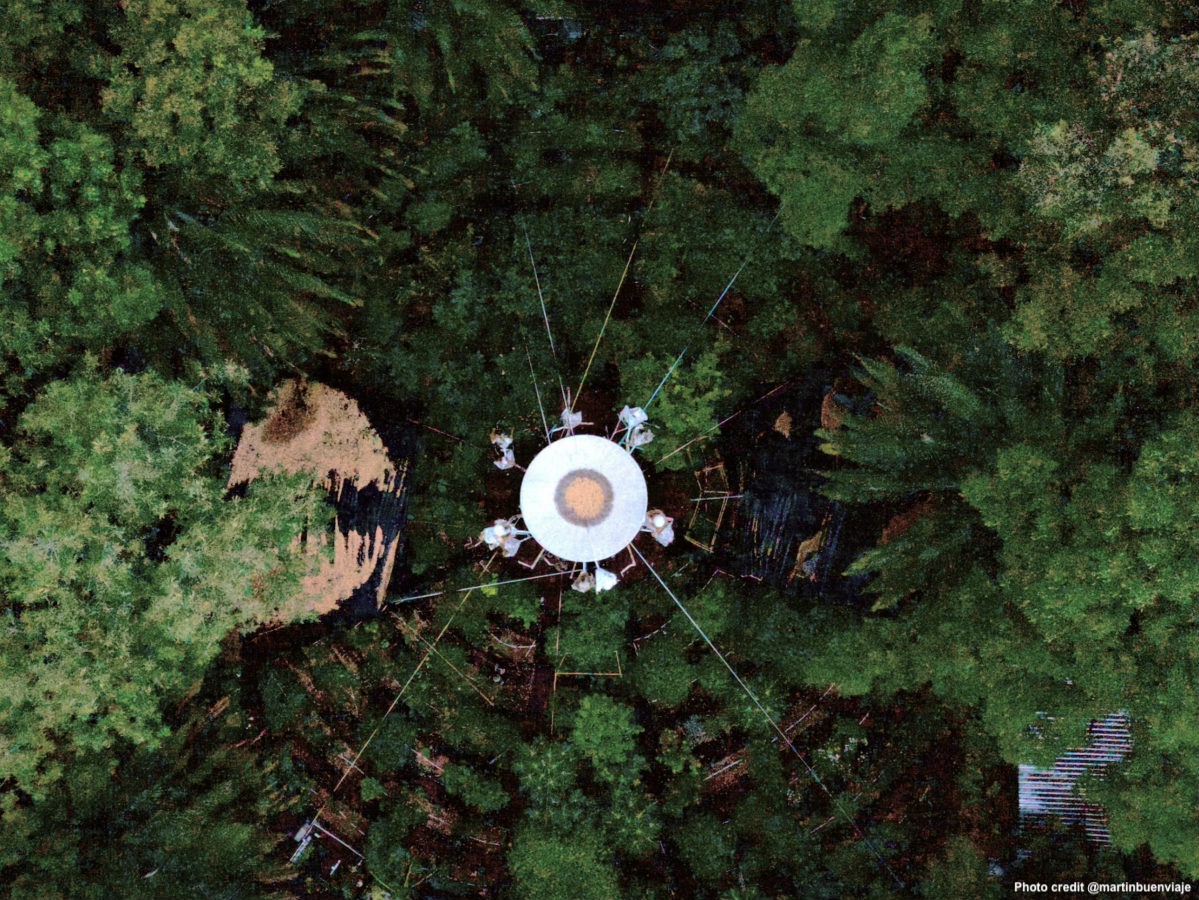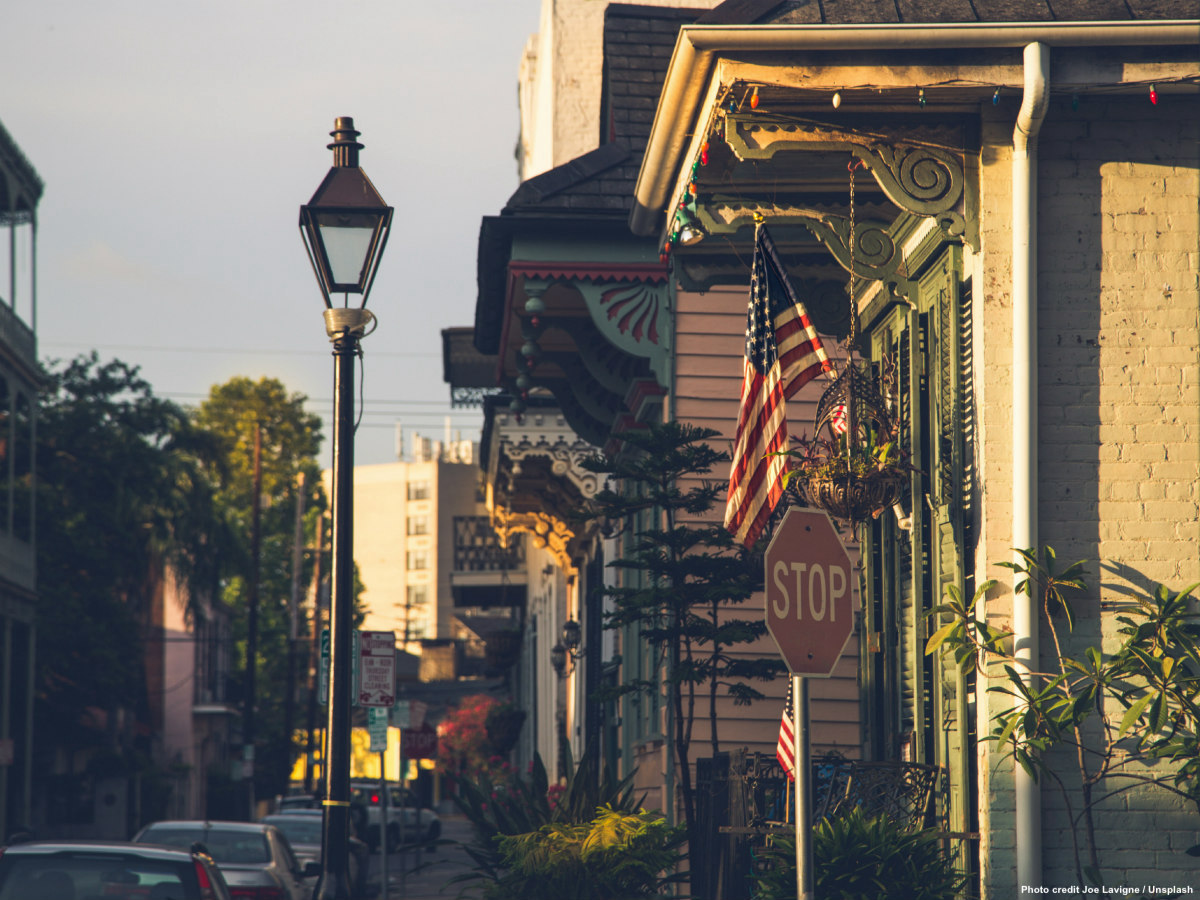An idle space at the heart of the city and easy for anybody to access. These two great conditions make Michael Faltenbacher and Thomas Manglkammer follow the unwritten rules in the best interest of the city. They wanted to offer citizens an open-minded green space outside of the straitjacket of convention in Munich. They have founded the first roof garden, which benefits from an idle parking lot’s rooftop.
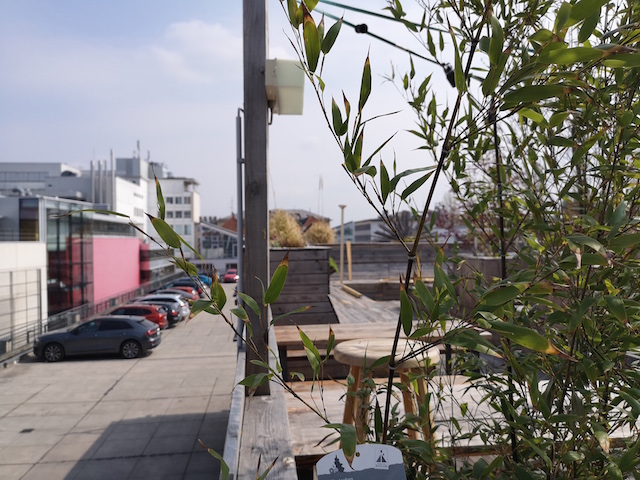
‘Only around 7% of the total capacity of rooftops at parking lots is being occupied by cars in the spring and summer months. During these sunny months drivers prefer to park undercover in the shade, hence most parking spaces on rooftops are sitting idle’, explains Michael. When he suggested to Alpina, the management company of the parking lot, to build a roof garden on an elevated space on their roof, they immediately agreed to rent it out for that purpose.
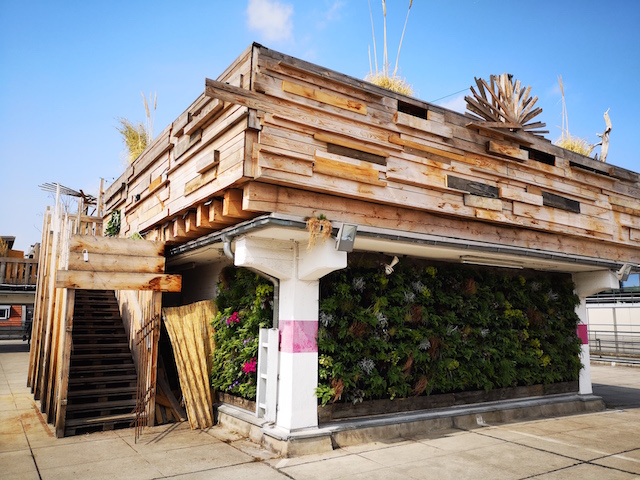
But the path to build a roof garden is not easy. ‘It took us two years to get all the permissions and the amount of money spent should not be underestimated’, points out Michael. Together with Thomas and a great team, they have designed a beautiful green space partly using recycle materials; all built by themselves.
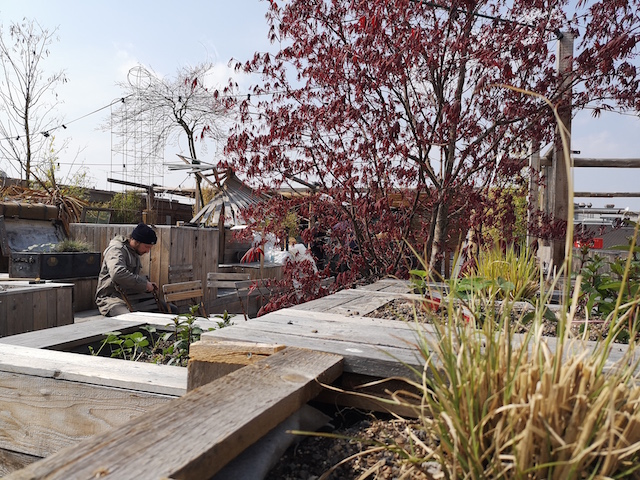
This roof garden is called ‘Kulturdachgarten München’ and it is located in the Adolf-Kolping-Strasse 10 between the square named Karlsplatz and the main train station where asphalt reigns and city planners abruptly disconnected citizens from nature.
But urban dwellers are begging for more green spaces in cities. Becoming green is now a high priority for urban planners. Meanwhile, regulators and city officials are making efforts to accommodate projects like Michael’s roof garden to rethink green spaces in cities. Because conceiving green cities today means more than scheming a park and tree-lined avenues.
The idea of creating urban green spaces is certainly not new. It is just the way they are flourishing now in cities that makes them different. They are conceived as open-minded spaces for social interaction and an intercultural exchange.
For instance, in Germany this new concept of green space collides with the idea of organised allotment gardening, the so-called “Schrebergarten”, a green movement rooted in German tradition, that once was a great initiative to just end up stifled by the proliferation of rules and walls in neighbour’s minds.
The people behind projects for a greener city like Michael and Thomas see beyond any rules or walls. They are driven by the belief that a city in equilibrium with nature has the power to lift up people’s spirits thereby contributing to a more balanced city life. Spending time among nature doesn’t just feel good, it is good!
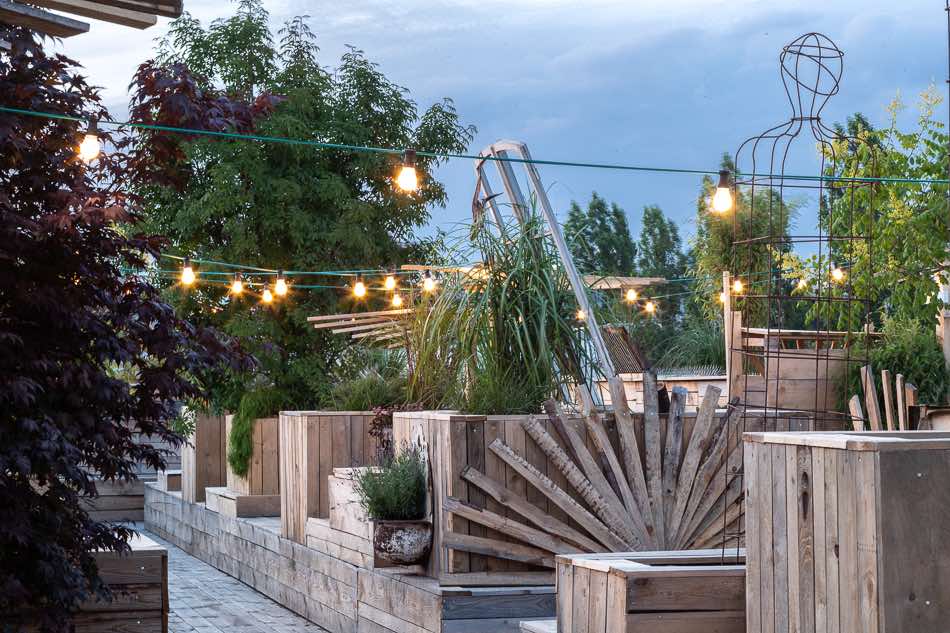 This green roof in Munich is a green oasis at the heartbeat of the city, you can enjoy good food and drinks and it is open to anybody. But it is not easy to find though. ‘We haven’t put any signs downstairs on purpose’, explains Michael. ‘People should be able to find us’. This is part of the same philosophy of creating an open-minded space that encourages people to think outside the box and look for something unusual in the city.
This green roof in Munich is a green oasis at the heartbeat of the city, you can enjoy good food and drinks and it is open to anybody. But it is not easy to find though. ‘We haven’t put any signs downstairs on purpose’, explains Michael. ‘People should be able to find us’. This is part of the same philosophy of creating an open-minded space that encourages people to think outside the box and look for something unusual in the city.
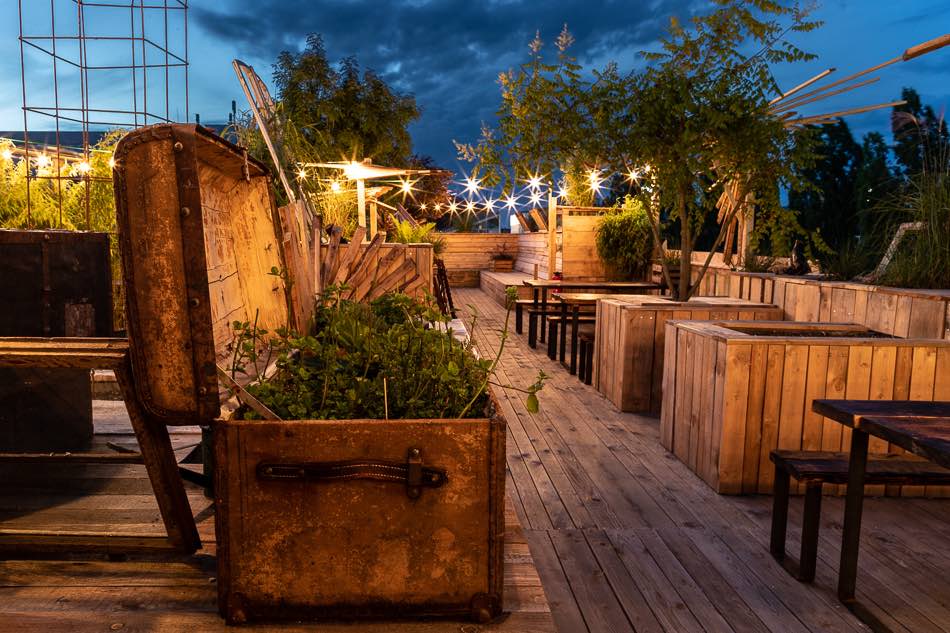 There is no music. This is not a club. It aims to be a space where something radically different happens and wants to survive before it is eventually re-absorbed into the dominant practices of the city.
There is no music. This is not a club. It aims to be a space where something radically different happens and wants to survive before it is eventually re-absorbed into the dominant practices of the city.
